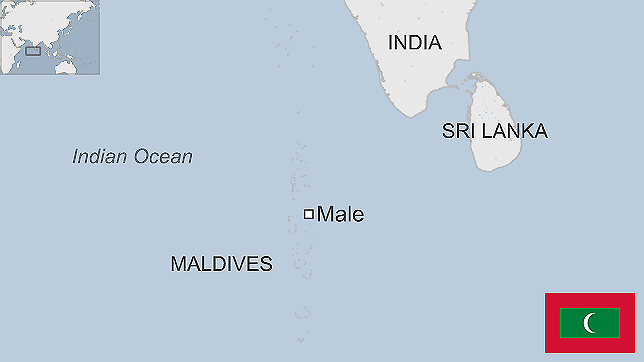Maldives treason charges add to political turbulence
- Published
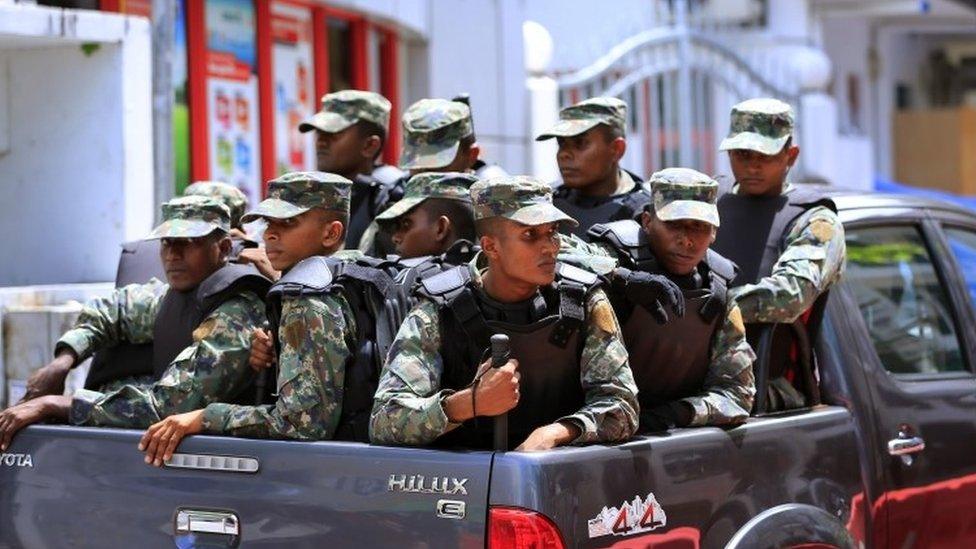
Political instability has dogged the Maldives since Maumoon Abdul Gayoom's 30-year tenure as president came to an end in 2008
In Maldives politics, fortunes can change very quickly.
Only three months ago, Ahmed Adeeb became the youngest vice-president in the country's democratic history.
The 33-year-old successfully pursued a constitutional amendment to lower the minimum age in order to assume the position.
He was regarded as one of President Abdulla Yameen's most-trusted aides.
But on Saturday, stepping off a plane from Singapore, Mr Adeeb was arrested on charges of "high treason", for allegedly conspiring to cause an explosion on the presidential yacht last month.
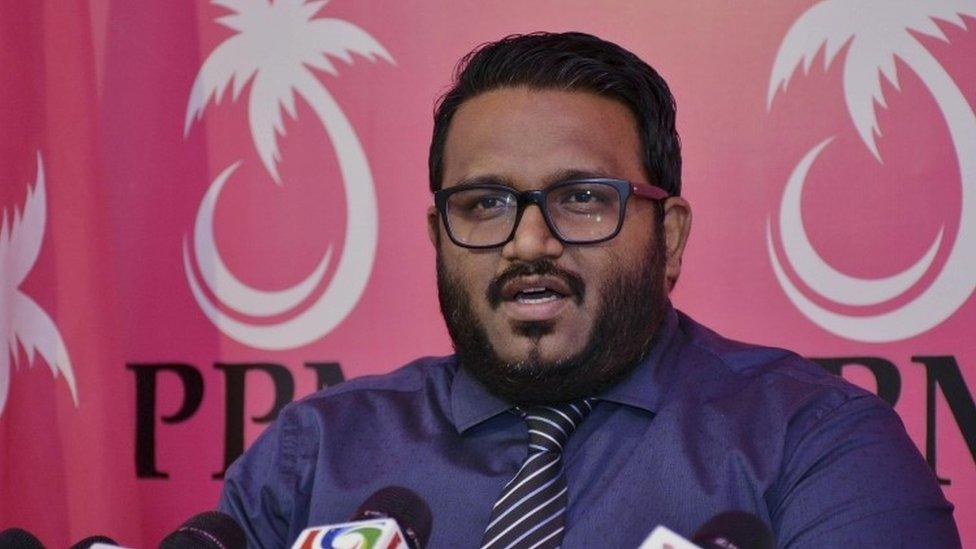
Mr Adeeb has a questionable past, having been implicated in a $6m (£3.9m) corruption scandal
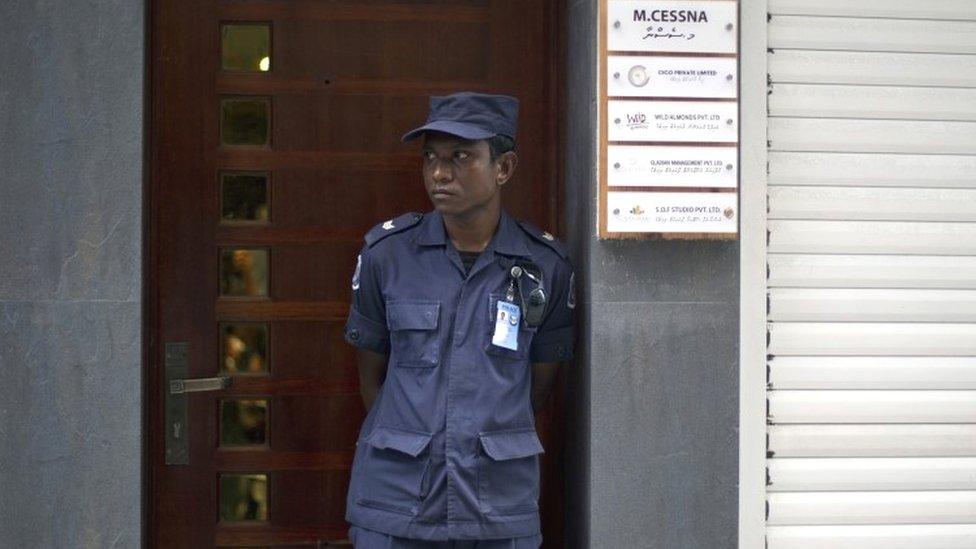
Many fear that the Maldives could be returning to its undemocratic past
President Yameen managed to escape unharmed in the blast, but the first lady and two presidential aides were injured.
The alleged attack was the latest incident to unnerve the island nation, which in recent years has faced a protracted political crisis and an alarming rise of Islamic extremism.
While initially the government said the blast may have been a result of mechanical failure, it later announced that it was an assassination attempt on the president and was opening a criminal investigation.
Some media focused on a possible attack by Islamic State sympathisers, only a month after a video had been released showing armed Maldivian militants threatening to target the president and carry out attacks on home ground.
But rumours then emerged implicating Mr Adeeb, eventually forcing him to deny them on live TV.
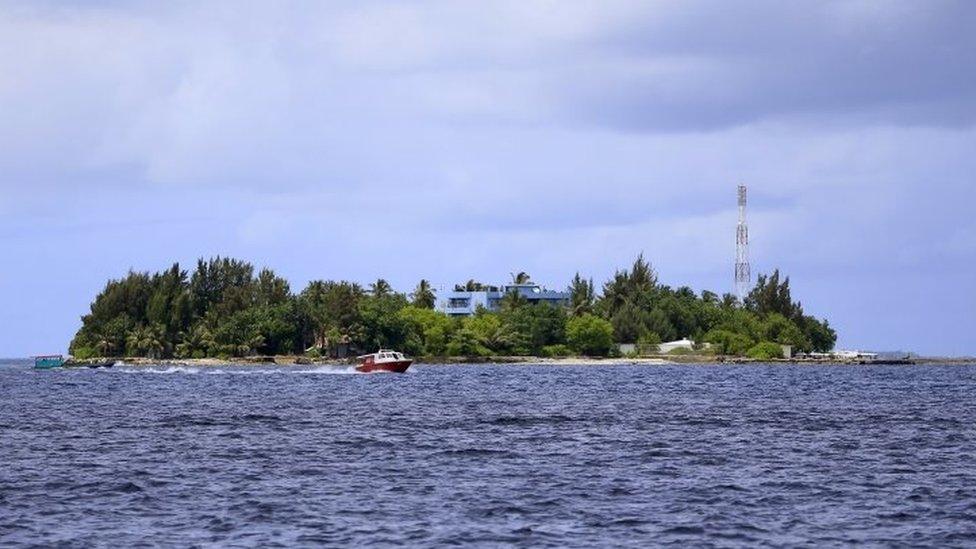
Mr Adeeb was arrested at Ibrahim Nasir International Airport on Hulhule Island as he was returning from an official visit to China via Singapore
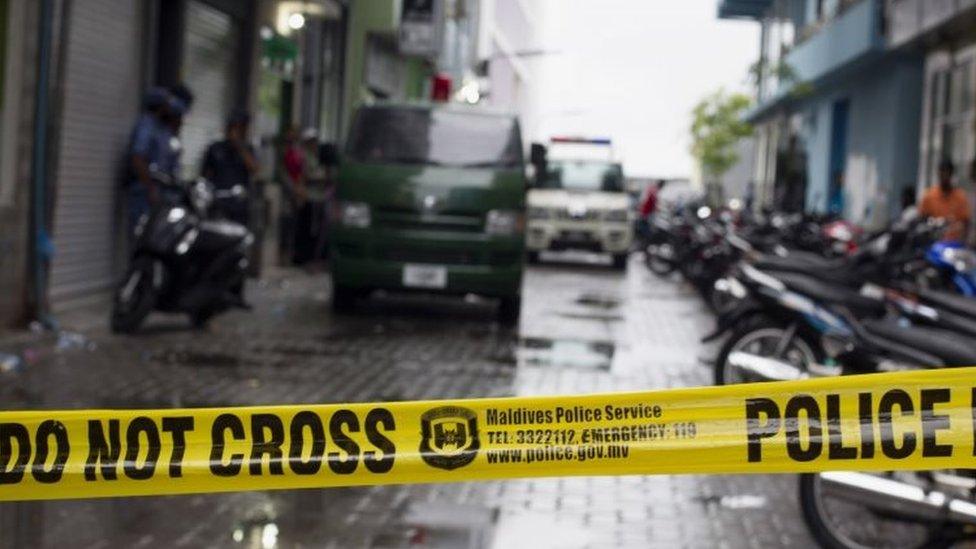
Police cordoned off the area outside Mr Adeeb's house in Male on Saturday
Speaking on Dhi TV, he complained that he was always being unfairly blamed for such events - in his words, "a hen ready for slaughter".
And he accused his predecessor, Mohamed Jameel Ahmed, of being the source of the speculation. Mr Jameel himself had faced treason charges, and was subsequently impeached, paving the way for Mr Adeeb's ascendancy.
Impeached
Under the Maldivian constitution, if Mr Yameen dies or is incapacitated, his vice-president would assume the presidency.
And Mr Adeeb has a questionable past, having been implicated in a $6m (£3.9m) corruption scandal, as well as having alleged links to gangs.
So his involvement in any alleged plot is not implausible. But is there any proof?
"It's so murky that we have no idea what's going on," says Zaheena Rasheed, the editor of the Maldives Independent, who has spoken to sources involved in the investigation.
"What's clear is that there is not enough evidence. From what we can see they have nothing on him.
"When so little is known, his arrest appears based on the fact that he would have the biggest motive."
The arrest reflects the extent of the political infighting that has characterised Mr Yameen's two years in office.
Since the blast, the defence minister and police commissioner have both found themselves dismissed from their posts.
And earlier this year, the former defence minister, Colonel Mohamed Nazim, was sentenced to 11 years in prison for weapons offences.
It has become apparent that President Yameen has not been afraid to remove or sideline supposed allies in the same way as he has sought to quieten the opposition.
His main political opponent, former President Mohamed Nasheed, was imprisoned in March under terrorism laws, for ordering the arrest of a judge while in office in 2012.
Mr Nasheed won the first democratic polls in 2008, ousting Mr Yameen's half-brother, Maumoon Abdul Gayoom, after three decades of autocratic rule.
Despite international condemnation and calls for Mr Nasheed's release, President Yameen has remained steadfast.
What critics fear is that his most recent move is another step towards consolidating power, and ultimately leading the country back to its undemocratic past.

Who's who in the Maldives
Abdulla Yameen - became president after 2013 elections that were plagued with problems. He is the half-brother of former President Maumoon Abdul Gayoom
Mohamed Nasheed - the country's first democratically elected president, he was forced to step down in 2012 in what he described as a coup. Now serving a 13-year sentence under anti-terror laws
Ahmed Adeeb - vice-president charged with treason in October 2015 in connection with an alleged plot to assassinate President Yameen
Maumoon Abdul Gayoom - was Asia's longest serving leader until his 30 years of autocratic rule came to an end in 2008
Mohammed Waheed Hassan - president from February 2012 to November 2013 - he came to power after Mohamed Nasheed was forced from power
Mohamed Jameel Ahmed - the fourth vice president of the Maldives from 2013 to 2015. Removed from office after he was impeached

- Published24 October 2015
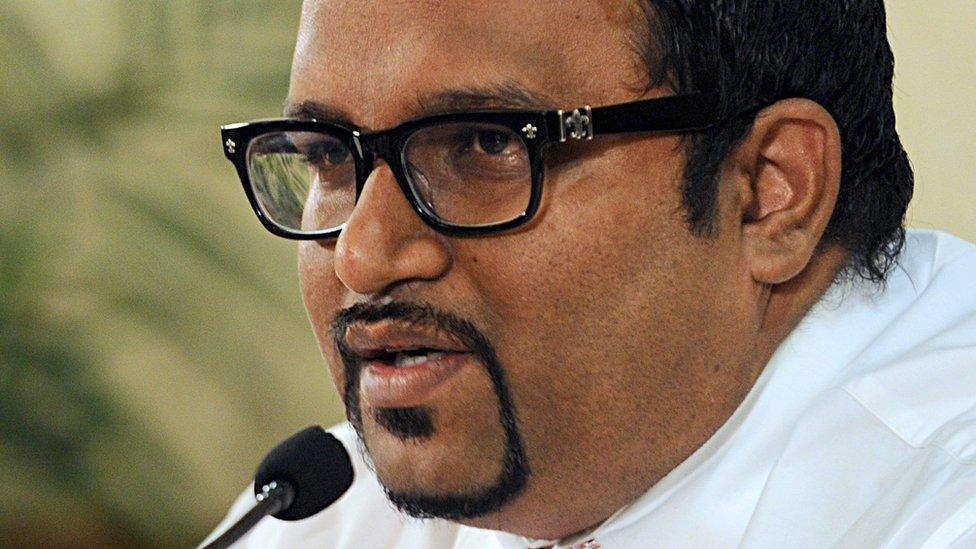
- Published17 November 2013
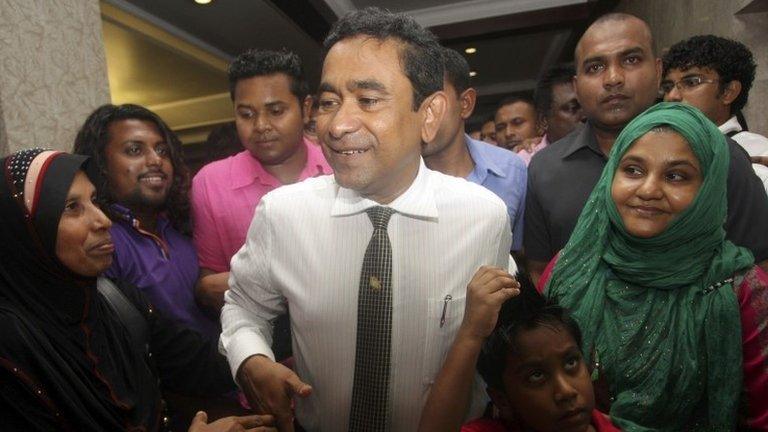
- Published16 November 2013
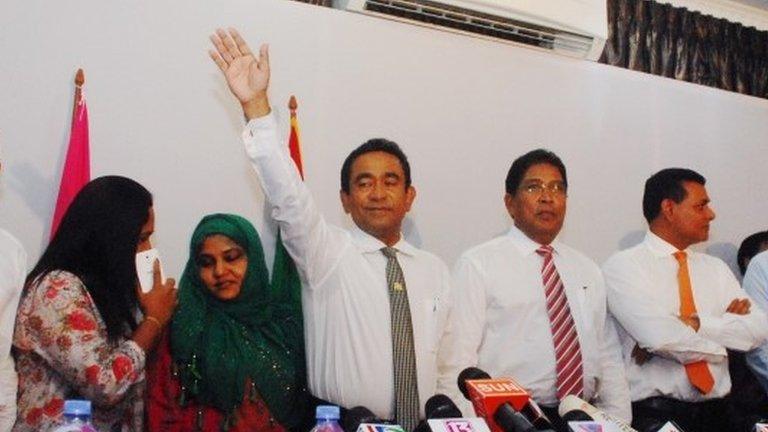
- Published28 September 2015
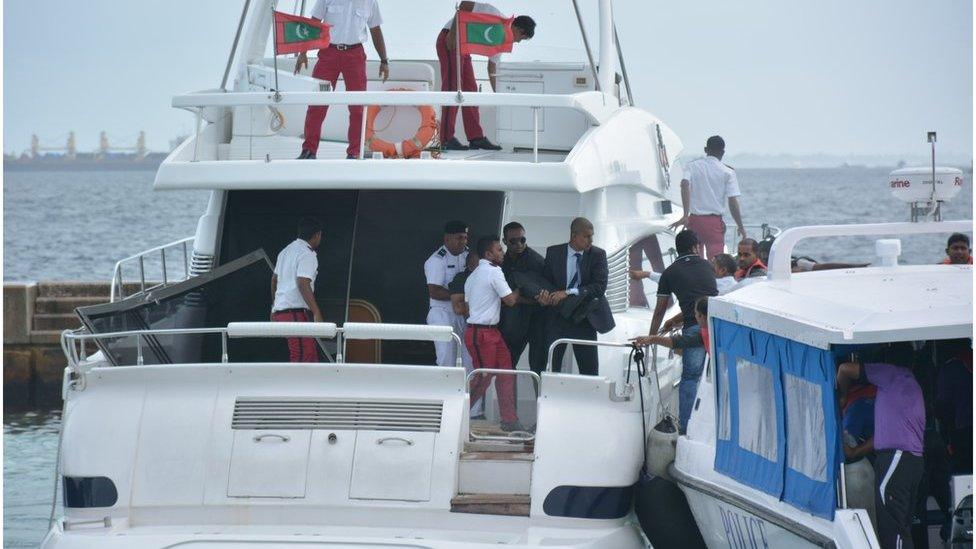
- Published22 February 2015
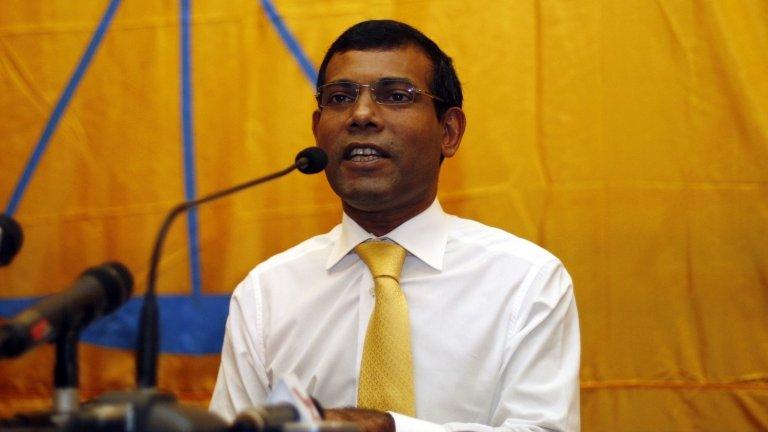
- Published10 March
